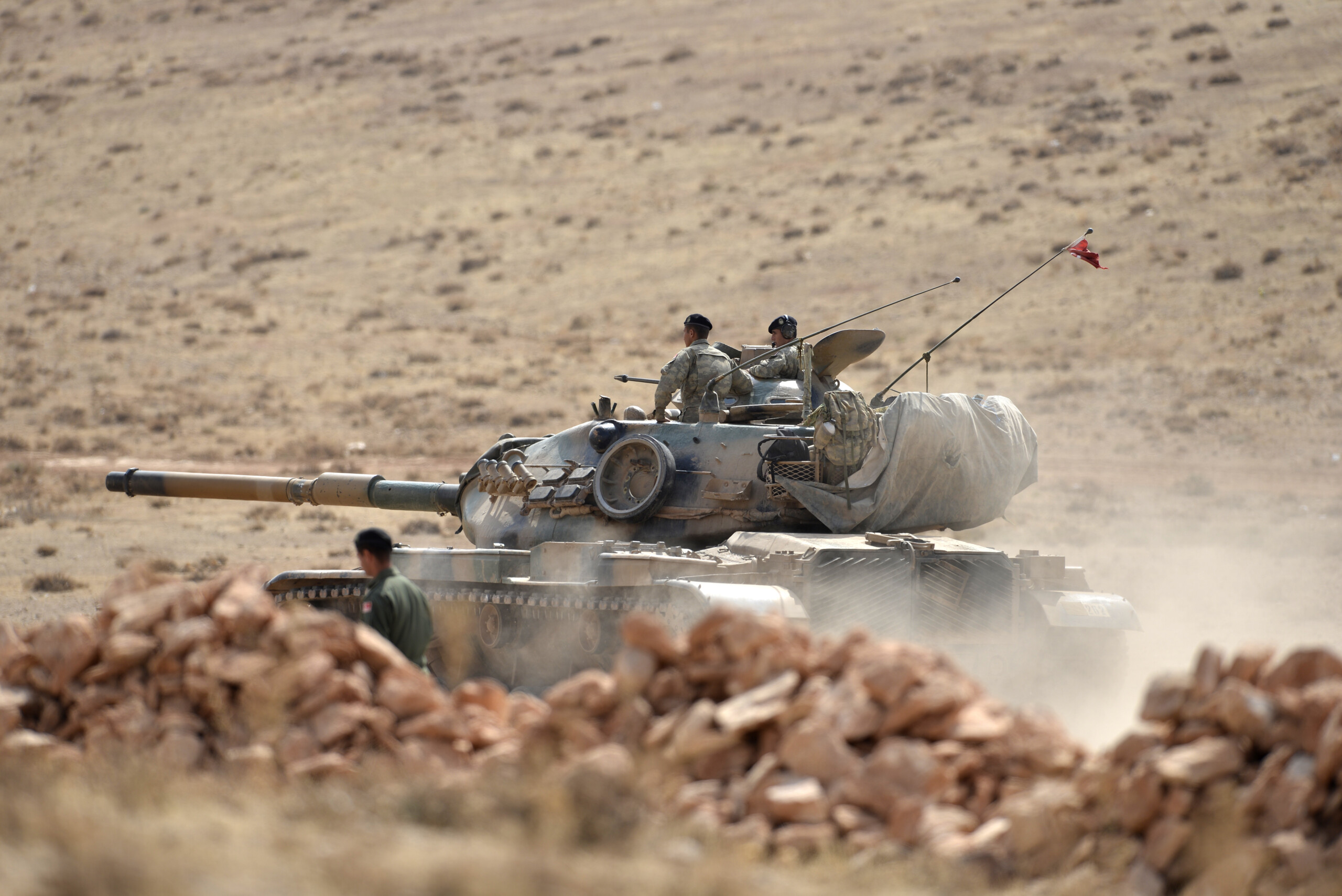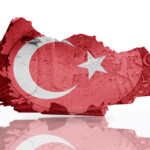‘Mustafa Kemal’s meaning to the Turkish people and his impact on Turkey are undeniable. Canceling Atatürk won’t convince Turks otherwise. If anything, it is more likely to exacerbate tensions and widen the existing chasm between Turkey and the descendants of its victims.’
One hundred and one years ago, Atatürk’s army expelled my great-grandmother and her family from Yeronda, now known as Didim, their ancestral homeland in Anatolia. I actively campaign for the American and Canadian governments to recognize the Greek genocide. I constantly criticize Ankara’s democratic back-sliding, mistreatment of minorities and aggressive foreign policy.
I even caused controversy in Turkey when I argued that Ankara should be expelled from NATO if Turkish President Recep Tayyip Erdoğan blocked Finland and Sweden from joining the Alliance. Despite my proven track record and advocacy, Disney should not have canceled Mustafa Kemal Atatürk.
Many Armenians, Assyrians, Kurds and Greeks perceive Mustafa Kemal as the mastermind responsible for the genocide committed against their ancestors. History is more complicated than that. Put simply, the Ottoman Empire’s crimes against the non-Turkish minorities of Anatolia predate Ataturk’s rise to power. Although the Young Turks and the Turkish National Movement continued this genocidal policy, canceling Ataturk is the wrong approach to take on the road to genocide recognition and reconciliation.
It’s preferable to criticize an unbalanced depiction of a historical figure than to censor the work entirely, as they do in totalitarian regimes like North Korea.
Unfortunately, we can’t change the past. Yes, the Ottoman Empire, the Young Turks and the Turkish National Movement conducted a 30-plus-year-long genocidal campaign against non-Turkish minorities in Asia Minor.
Yes, Turkey denies this truth and criminalizes recognizing it despite incontrovertible evidence. Yes, acknowledging this historical injustice is indispensable for improving both how Turkey treats its minorities and Ankara’s diplomatic relations with the descendants of its victims in neighboring countries.
Nevertheless, Turkey exists, it is a powerful state we have no choice but to deal with, and Atatürk remains one of the most consequential nation- and state-builders of the 20th century.
Mustafa Kemal united the Turks of Asia Minor to build Turkey both on the bones of its non-Turkish minorities and from the ashes of the Ottoman Empire. Dismantled even before it was defeated, what remained of the empire after World War I was a failed state occupied by foreign armies seeking the spoils of war.
To the descendants of non-Turkish minorities from Asia Minor, Atatürk is remembered for expelling our forebears. To the Turkish people, Mustafa Kemal is celebrated for reversing the humiliating status quo imposed by the Allies on what remained of the “Ottoman Empire” at Sevres in 1920. Following the 1923 Treaty of Lausanne, Atatürk implemented widespread social, political, legal and cultural reforms that transformed Turkey from the “sick man of Europe” and failed state into a modern and secular constitutional republic within a few years.
Mustafa Kemal modernized everything from Turkey’s education and legal systems to its political institutions. The sultan, who previously held ultimate political and religious authority in the Ottoman Empire, was forced into exile. Sovereignty was no longer vested in one ruler, but in the Turkish nation.
Despite centuries of consolidation, a predominantly Islamic state was secularized almost overnight. Traditional religious orders and Islamic centers of learning were replaced with secular public schools. The Turkish alphabet, previously written in Arabic script, was latinized. Turkey instituted a civil code based on that of Switzerland, a criminal code copied from Italy, and modernized its commercial law. Turkey adopted the Gregorian calendar and Western measurement systems. Women were also given the right to vote and hold office years before their counterparts in France, Italy, Greece and Quebec.
Apart from Prime Minister Lee Kuan Yew of Singapore, there are few – if any – other state-builders who contributed so significantly to both their country’s success and their nation’s identity in the 20th century. For that reason, Ataturk is revered by tens of millions of people – both Turks and non-Turks – around the globe.
In fact, the Turkish Grand National Assembly enacted a law bestowing Mustafa Kemal with the surname “Atatürk,” meaning father of the Turks, in honor of his contributions to Turkey. For decades, pan-Arabists even awaited the emergence of their own “Atatürk.” While monuments built in Mustafa Kemal’s honor are scattered across Turkey, insulting Ataturk is punishable by anywhere between one to five years in prison.
Mustafa Kemal’s meaning to the Turkish people and his impact on Turkey are undeniable. Canceling Atatürk won’t convince Turks otherwise. If anything, it is more likely to exacerbate tensions and widen the existing chasm between Turkey and the descendants of its victims.
Mustafa Kemal was also respected by his enemies. Greek prime minister Eleftherios Venizelos fought against the Ottoman Empire, the Young Turks and the Turkish National Movement for four decades: in the First Greco-Turkish War, the Balkan Wars, World War I and the Second Greco-Turkish War.
Years later, Venizelos famously observed: “In the life of a nation it is very seldom that changes to such a radical degree were carried out in such a short period of time. Without a doubt, those who have accomplished these extraordinary acts have earned the attributes of a great man in the complete sense of the word. And because of this, Turkey can be proud of itself.”
Despite their decades-long rivalry, Venizelos also nominated his enemy Mustafa Kemal for the Nobel Peace Prize in 1934. This raises the question: If Venizelos didn’t cancel Atatürk back then, why should Disney cancel him almost a century later?
Worshiped by some and despised by others, Mustafa Kemal remains a polarizing but consequential historical figure. While Turkey is outraged by Disney’s decision to cancel the series, non-Turkish audiences lose most by being robbed of the opportunity to learn more about the “Father of the Turks.”
After all, it’s impossible to understand modern Turkey without understanding Ataturk.
This article was originally published by Ekathimerini.
The views and opinions expressed above are the author’s and do not represent those of the Free Turkish Press.


